It’s been 6 months now since I moved from Amsterdam to Asia to work remotely. I chose Thailand for its low-cost of living and safety. Since my visa will run out soon, I’ll have to leave the country and I’d like to sum up what I learnt from working here over the past 6 months and if it might be an option for more people.
The good
Cost of living
The cost of living in Thailand is quite low. If you stay outside of Bangkok, you can live comfortably here for under $1,000 per month. That means renting an apartment or long-stay hotel. Usually with a pool. Eating outside every day. Having drinks at night. And even splurging on sushi once in a while. Life is just cheaper here.
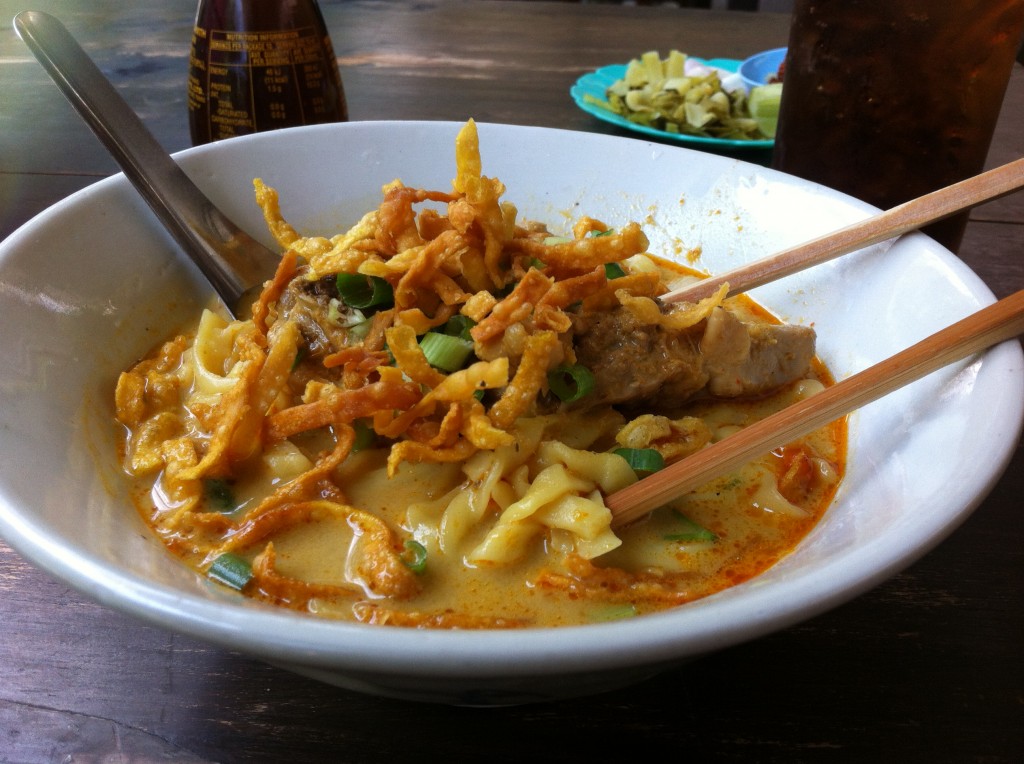
Since, everything is cheap and the food and quality of life is amazing, that makes it a perfect place to bootstrap your startup. If you’re bootstrapping, a low cost of living can increase your runtime by many multiples. Meaning you can go on for longer with less money. In six months, I spent about $1,400 per month (EUR 1,000). That was mainly because I liked to hang around in Bangkok every once in a while, and relative to the rest of Thailand that city can be crazy expensive.
Increased focus
Moving to the other side of the world gives you an insane amount of focus which you can channel to really get anything done that you’re working on.
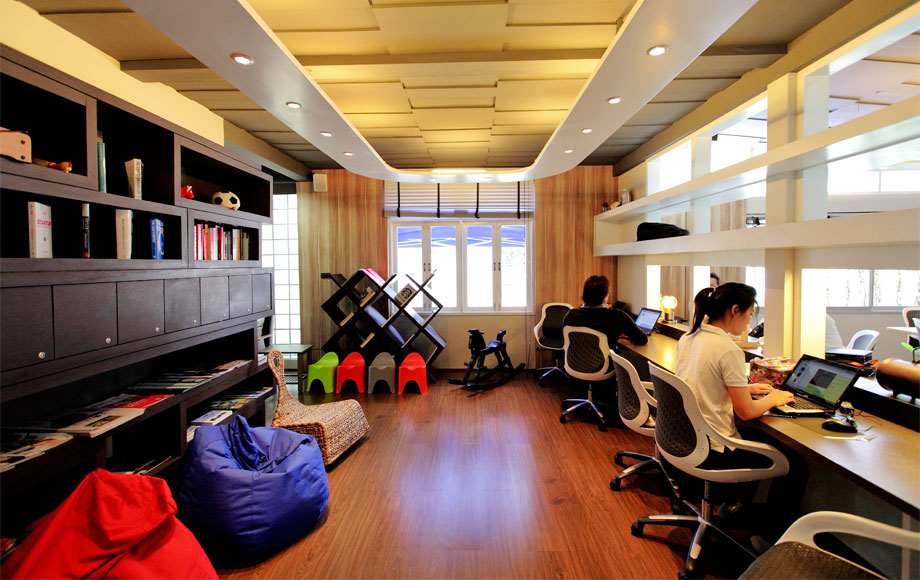
In these six months, I grew my already profitable business — a YouTube network called the Panda Mix Show — by automating most of my tasks and hiring two employees to do the rest. Besides that, I built and launched a YouTube analytics startup which is now gaining traction with its first users signing up.
I worked with a level of focus that I have only really experienced before when I was 12 years old and my parents still took care of me. Back then, my housing, food, laundry was taken care of although I had school, I’d have lots of time to focus on my own stuff (back then learning design with Photoshop). Due to the cost of living, it’s kind of the same here.
You can stay at hotels with daily room cleaning, free towels, free Wi-Fi and you don’t have to worry about utility bills. You can eat outside for breakfast, lunch and dinner. Instead of an expensive phone subscription, you can get a cheap pre-paid SIM for $20/m with 2GB data and free WiFi in most major cities. Your hotel can do your laundry for you and they’ll even iron and fold it. Since I never had to cook food, I also never had to deal with the pain of grocery shopping and doing the dishes and I needed a lot less stuff to live. And as my hotel was always near my office, I didn’t have the awfully long commute to work many people have to make daily. I calculated all this saved me at least 6 hours daily. That’s one-third of a waking day!
All of this was obviously only possible due to the lower cost of living here and the advantage of spending power with Western money. If that is fair is another discussion altogether.
No pressure from society
There’s a strange thing that starts happening in your head after a few months abroad (I noticed this before when I lived in Korea in 2009). You start to become disconnected from your homeland’s society and its behavioral norms. And since you’ll never be a native, locals will treat you as a foreigner, so you’ll never be able to assimilate in the local society as a real native. This posits you right in between two systems of society, not fitting in any of the two.
For some people this can be detrimental, as they need some structure or norm to follow and if they wouldn’t have that, they’d lose themselves. But if you can keep yourself together, it actually gives you an incredible freedom to pursue your own path in life, and not necessarily follow one society’s pressures. You might become a stronger person that is more able to make its own independent choices by picking bits and pieces from different cultures and societies that fit you best.
That fits in well with starting your own business. You get away from group-think and can create your own unique ideas as you’re inspired by an environment not many of your peers are in.
Co-working spaces are a plenty
There’s plenty of co-working spaces in Thailand. Bangkok has the huge Launchpad and the cosy Hubba heavily focusing on startups, while its second city of Chiang Mai has PunSpace, which caters more towards lifestyle entrepreneurs.
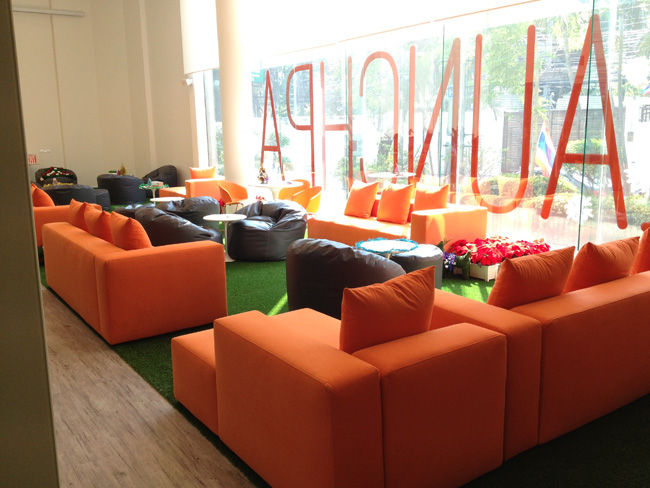
Amazing leisure time
My work routine would be that I’d go on hyper-focused stints of working on something and then finishing it in a few weeks. And then I’d take a two week break and go to a paradise island or make a trip to Bangkok and have fun there
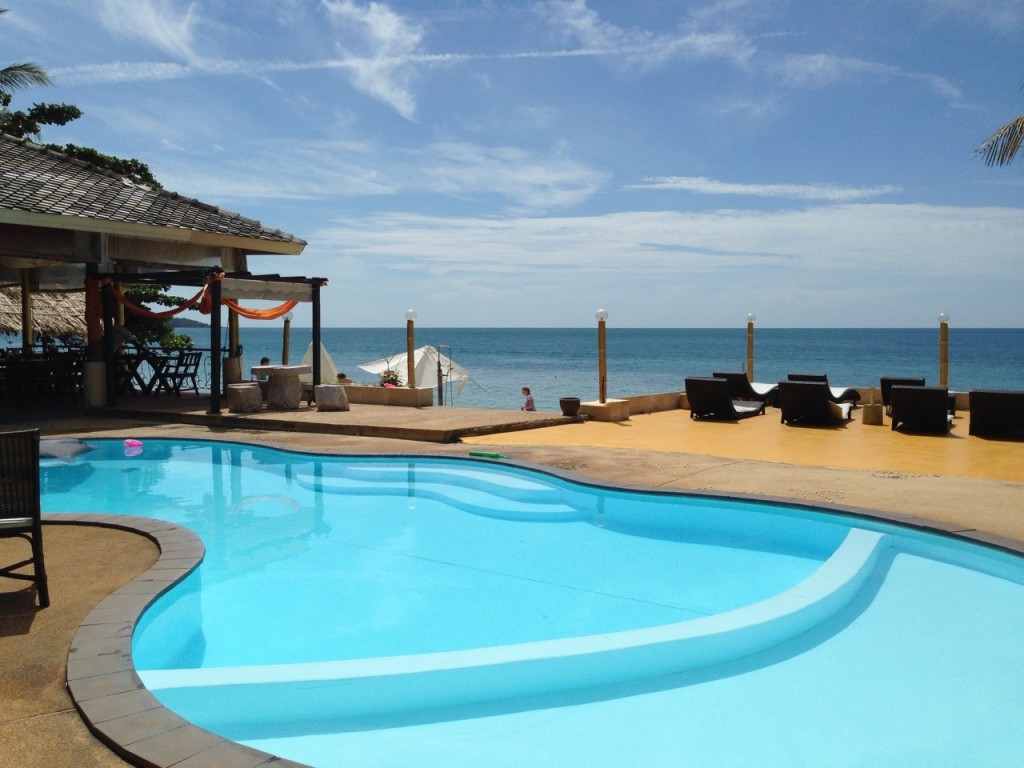
Thailand is arguably one of the best countries for just that: leisure. It’s got great weather and amazing beaches. And beach resorts can be as cheap as $5/night. And even though I’m more a fan of London, Amsterdam or Berlin’s clubbing scene, Bangkok does have amazing roof-top bars and fun places where you can drink on the street. And like the food, drinks are quite cheap.
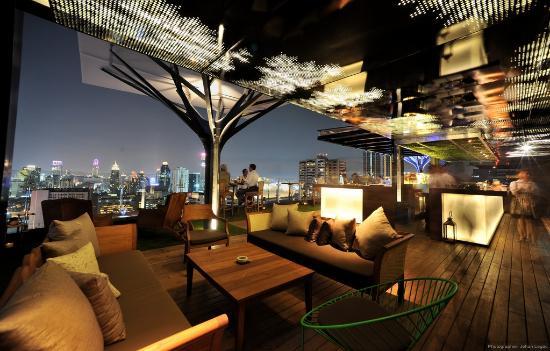
The bad
Distractions
Even though there is a huge potential for focusing on your work here, you’re in a country where most people go for holidays. All those good things I just mentioned? Beaches, weather and cheap drinks? Yeah they are also distractions, if you don’t have the discipline to ignore them while you’re working.
Visa runs
The visa situation is Thailand is still a pain. Especially compared to its neighboring countries, like Vietnam. With a multiple-entry visa, I was able to stay in the country for 60 days, I then had to go to the immigration office to extend it for 30 days, I then had to leave the country after that period and come back in to get another 60 days. And then extend it for another 30 days after that. And then leave the country again.
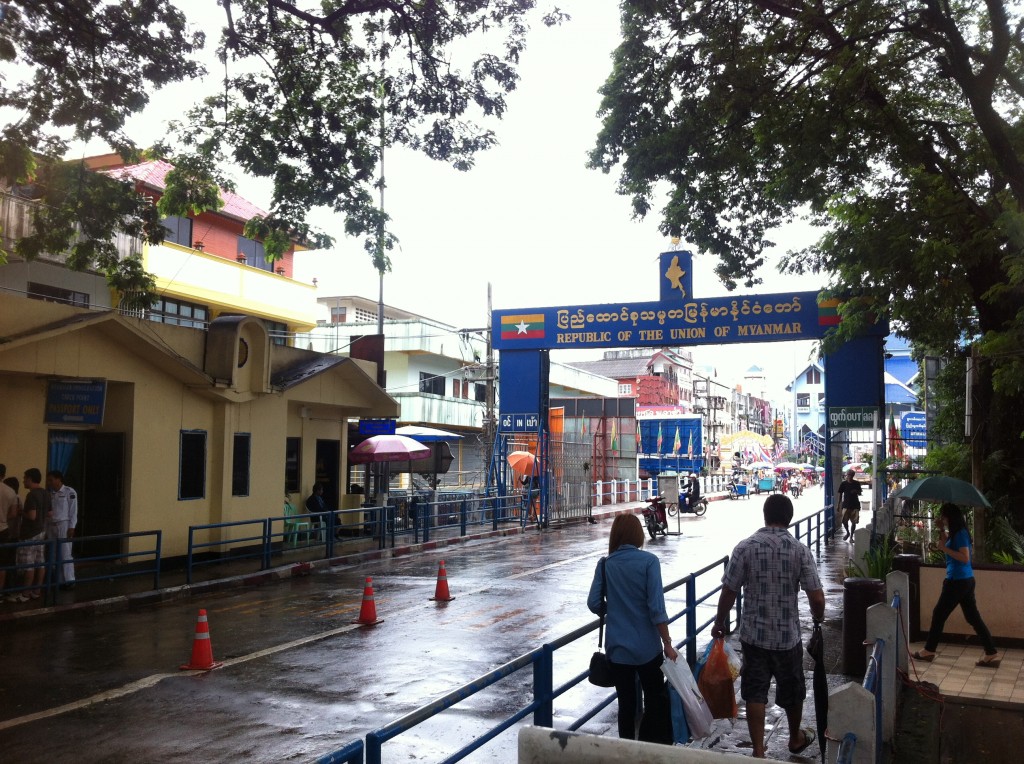
This gave me a total of 6 months to stay here. But it meant paying $60 each extension, standing in queues all day, taking visa runs out of the country (even into Burma). It’s not ideal at all. Thailand should consider changing this and making it easier to stay, after all, most of us are spending money here.
Sex tourism & prostitution
Thailand still has rampant amounts of sex tourism. That means seeing 65-year old foreigners walking with 18-year old girls on a daily basis. If you don’t care about that, that’s alright, but it makes me sick. Prostitution is everywhere. It’s impossible to go partying in Thailand without seeing prostitutes in the club you’re dancing; no not a sex club, just a regular club! I don’t like prostitution as I think many of these girls could do more fun jobs than fucking strangers for money. And it’s annoying to find out the girl you’ve been talking with for over an hour, just wants your money. There’s nothing Buddhist about the sex industry, on the contrary.

Worse than not agreeing with it and being annoyed by it, the sex industry brings down the entire image of Thailand. The country now has the sleazy image of cheap sex and ping-pong shows, which even Rihanna confirmed with this tweet last month:
Either I was phuck wasted lastnight, or I saw a Thai woman pull a live bird,2 turtles,razors,shoot darts and ping pong, all out of her pu$$y
— Rihanna (@rihanna) September 21, 2013
Thailand’s government is wholly responsible for this situation. Prostitution and sex shows are against the law, but Thailand’s issues with corruption means police chiefs are bribed to look the other way. And since from top-to-down the entire country is in on it, it’s not going to change soon unless the prime-minister speaks out against it fiercely. Unfortunately, with a powerless government at the moment and most people having lost their faith in its politics, I don’t see that happen any time soon.
Especially now that Asia is booming, as a country you have to think about what kind of people you want to attract to your country. Do you want to be the sleazy destination for sex tourism or the economic powerhouse of the future? Thailand needs to choose soon, as its neighboring countries such as Vietnam already did, and they didn’t choose sex.
Everybody is passing-through
When I first arrived in the northern city of Chiang Mai — one of the hubs for remote working foreigners — I met a lot of great people that had profitable online businesses and had moved here from America, Europe and Australia. There was a nice clique of friends that would work and hang out together. It was like a little remote community.
But then after a few months, slowly everyone started disappearing one-by-one. What I was experiencing was simply the passing-through of people. Remote working online entrepreneurs are highly individualistic and impulsive. If they don’t like being in a place anymore, they simply pack up and move to the next spot. So do I. But that makes it hard to make long-term friends. It’s like being on the road….all…the..time.
Heat
Luckily, Thailand is obsessed with air-conditioning and almost every in-door-area, be it coffee shop or co-working space is under 24 degrees Celsius. But when you go out, the heat can still get you. And if you walk to the place you work at, that means you’ll be sweaty in less than ten minutes. Some days, the heat can be excruciating and you’ll just be sitting inside all day.
Inflation is crazy
At time of writing (late 2013), inflation is getting to crazy levels here. I do not know the official numbers but everyone is experiencing it. When I arrived in Bangkok in April, I paid 40 baht (EUR 1) for chicken-with-rice (kow-man-gai), 650 baht (EUR 15) for a private hostel room, and 40 baht (EUR 1) for a 10 stop ride with the public transport. When I came back after 6 months, the food had gone up 25%, the room 15% and the public transport 10%. Extrapolated that’s an annual inflation rate of over 35%. And then you haven’t even considered the increasing value of the baht vs. the euro/dollar. That means Thailand won’t be so cheap for very longer.
Surprises
The Thai startup scene
For all its events, meet-ups and hackathons, the Thai startup scene is still very much in its infancy. There’s a lot of positive energy and enthusiasm going around, but Thai culture is still so intrinsically corporate focused. For example, most Thai developers I met coded in Microsoft’s proprietary language C#. Why not open source languages like C, Java or Python? I quickly found out that’s because most programming courses in Thailand are C# focused to land students corporate jobs. The enterprise loves C# coders. But that’s not necessarily the best language for a startup stack.
With so much poverty around and such a large income divide, the majority of Thais are more concerned with getting any income at all and are not able to take the risk of working months/years on a web or mobile app. And that’s unfortunate, as it makes startups an activity privileged to Thai’s wealthy elite. And that’s not necessarily where the big ideas are.

The Thai startup scene appears to be struggling with the same issue many other newly sprung up startup scenes around the world are dealing with: there’s too much talk and not enough action. All major Thai telcos — TRUE, DTAC and AIS — have incubators that offer workshops, competitions and awards, but they’re not even giving out capital! These are huge corporations with buckets full of money. If they are not even ready to take on the risk to invest in Thai startups, then who is? Obviously, it’s more of a promotional vehicle for them than an actual incubator. But that’s detrimental. As it means tech giants like South Korea’s NAVER can come in and steal the show. NAVER introduced its free phone-to-phone messaging app LINE and it has quickly become the dominant messaging platform in Thailand. That could have been a Thai company.
The capital I have seen going round ranges from $50k to $500k. That is peanuts if you compare it to what’s going around in Silicon Valley or even Europe. Which is just weird if you think about how much of an emerging market SE Asia is, and how we’re all saying Asia is booming. Well, if it’s so booming, where is the money to show for it? Not in startups. Yet. Everyone’s too risk-averse. And that’s a cultural problem that will have to change. It will though, but it’ll take time. The energy is definitely already there.
Conclusion
It was a great six months, and I would recommend Thailand to anyone wanting to take the dive to start working away from their own country. For all the bad, there’s more good. It’s comfortable, safe and Thais are one of the friendliest people I’ve ever met. Right up there with Americans. Just like with Americans, some may say the smile is a fake cover for their real feelings. But I never had that impression. Thai people are intrinsically friendly people and they’re more than happy to see you visit.
As usual, this post is vigorously discussed at Hacker News
P.S. I'm on Twitter too if you'd like to follow more of my stories. And I wrote a book called MAKE about building startups without funding. See a list of my stories or contact me. To get an alert when I write a new blog post, you can subscribe below: